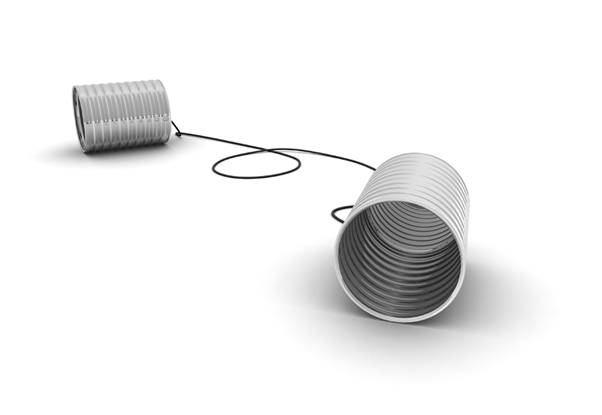Imagine you were having a conversation with your boss, asking for a raise, or negotiating a new assignment.
Say she was checking her email, flipping through a notebook, or texting away on her mobile. Or what if she kept interrupting you before you could make your point?
Would you feel heard? How well could you present your case in that situation? How confident would you be in the response you get?
No one ever listened himself out of a job.
– Calvin Coolidge
We have so many gadgets, devices, and “notifications” that seem to scream for our infinite attention every minute of the day.
We can actually trick ourselves into believing that they are always more important than a conversation that’s unfolding right in front of us.
But they’re not.
What about you? How do you overcome the lure of distraction during conversations?
One of the most effective practices you can bring to your job (or any other life situation) is the skill of being a good listener. Whether it’s devices that sabotage you, or the lack of good listening skills, I want to show you some ways to improve.
It’s through the action of listening effectively, not just talking, that you become an exceptional communicator. [Tweet this]
Often I see people who think listening is simply waiting for their turn to speak. It’s not. If you struggle with this as well, here are some tips that can help you.
In the process, you’ll add more value and richness, and better outcomes, to your conversations.
 Presence. Push other conversations and activities from your mind and be present to the conversation at hand. Yes, this might be challenging, but necessary for you to be able to really listen. Put yourself in the other guy’s shoes, you’d appreciate the same.
Presence. Push other conversations and activities from your mind and be present to the conversation at hand. Yes, this might be challenging, but necessary for you to be able to really listen. Put yourself in the other guy’s shoes, you’d appreciate the same.- Focus. Put away the mobile, the texting, the notebook, and focus on this conversation.
- Suspend judgment. The idea is to listen with neutrality. Suspend judgment of any kind. If you aren’t thinking about validating (or refuting) the other person’s comments, you can totally focus on listening.
- Neutral facial expressions. I was once taught to listen without making any facial expression, including nodding or smiling. I’m not talking blank stare, glazed over look. I’m talking about a neutral facial expression that says, “I’m listening.” Engaged, but not presumptive. This is the physical manifestation of suspending judgment and it really does help you focus on listening. Try it and see.
- Watch your non-verbal messages. Avoid the furrowed brow, crossed arms, and facial expressions that might transmit you have other things you’d rather be doing. Be aware of your posture, and any foot-tapping-like habits that say “I’m more interested in moving on to the next thing, than having this conversation.”
- Don’t interrupt. This presumes you knew what someone was going to say. In fact, you don’t.
- Ask validating questions. These validate that you are “receiving” correctly. They ensure you and the speaker are on the same page, once the speaker has completed her thought.
- So what I hear you saying is_______________. Am I getting that right?
- Can you repeat that? I want to make sure I heard you correctly.
- Ask clarifying questions. These questions help clarify something you might not understand after the speaker has completed a thought.
- When you say Plan B what specific Plan B are you referring to?
- What do you mean when you say Plan B?
- Tell me more about that.
- Avoid listening bias. What I mean by that, is don’t discount listening to someone because they are a different gender, intelligence level, from a different department, of a different culture, or subordinate, to you. They may know something, or have a unique perspective, that you don’t.
Every conversation has potential value. If you’re not listening, you’ll miss it. Improved listening skills will give you more confidence, no matter what kind of conversation you’re having.
Your action for this week:
Try these techniques in at least one conversation per day. Then see how differently these feels from conversations where you don’t focus up quite as much.
Leave a comment below and let me know what you discover!